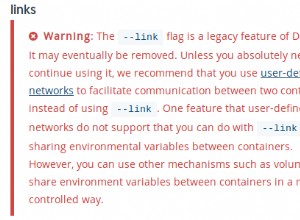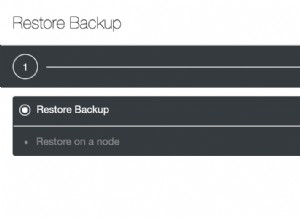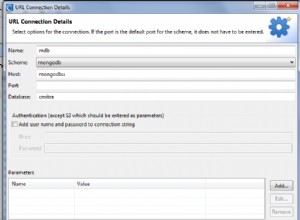Die Python-Treiberdokumentation gibt in der Tat ein wenig Aufschluss darüber, wie man db.command verwendet . Hier ist ein vollständiges Arbeitsbeispiel:
from pymongo import MongoClient
from collections import OrderedDict
import sys
client = MongoClient() # supply connection args as appropriate
db = client.testX
db.myColl.drop()
db.create_collection("myColl") # Force create!
# $jsonSchema expression type is prefered. New since v3.6 (2017):
vexpr = {"$jsonSchema":
{
"bsonType": "object",
"required": [ "name", "year", "major", "gpa" ],
"properties": {
"name": {
"bsonType": "string",
"description": "must be a string and is required"
},
"gender": {
"bsonType": "string",
"description": "must be a string and is not required"
},
"year": {
"bsonType": "int",
"minimum": 2017,
"maximum": 3017,
"exclusiveMaximum": False,
"description": "must be an integer in [ 2017, 3017 ] and is required"
},
"major": {
"enum": [ "Math", "English", "Computer Science", "History", None ],
"description": "can only be one of the enum values and is required"
},
"gpa": {
# In case you might want to allow doubles OR int, then add
# "int" to the bsonType array below:
"bsonType": [ "double" ],
"minimum": 0,
"description": "must be a double and is required"
}
}
}
}
# Per the docs, args to command() require that the first kev/value pair
# be the command string and its principal argument, followed by other
# arguments. There are two ways to do this: Using an OrderDict:
cmd = OrderedDict([('collMod', 'myColl'),
('validator', vexpr),
('validationLevel', 'moderate')]
db.command(cmd)
# Or, use the kwargs construct:
# db.command('collMod','myColl', validator=vexpr, validationLevel='moderate')
try:
db.myColl.insert({"x":1})
print "NOT good; the insert above should have failed."
except:
print "OK. Expected exception:", sys.exc_info()
try:
okdoc = {"name":"buzz", "year":2019, "major":"Math", "gpa":3.8}
db.myColl.insert(okdoc)
print "All good."
except:
print "exc:", sys.exc_info()




